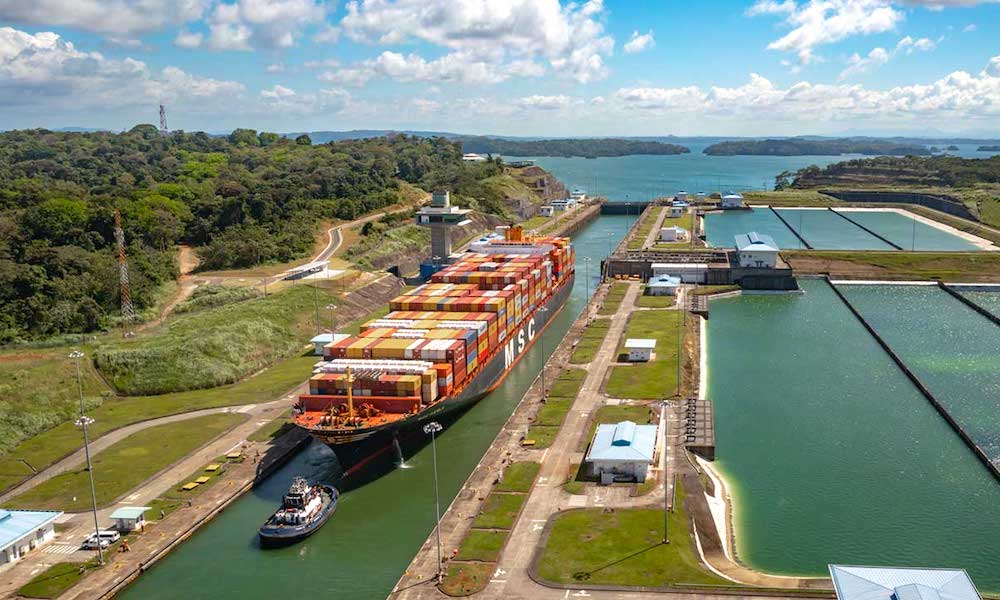Panama President Rejects Trump’s Canal Claims

In a recent rally in Arizona, US President-elect Donald Trump made headlines with his comments regarding the Panama Canal. He accused Panama of charging excessive fees for ships passing through this crucial waterway. Trump stated that if these rates were not lowered, the United States would demand the canal be returned “in full, quickly and without question.” His remarks have sparked a significant backlash, particularly from Panama’s President, José Raúl Mulino.
Trump’s assertions about the canal’s fees being “ridiculous” and “highly unfair” were met with immediate condemnation from Mulino. The Panamanian president emphasized that the canal and its surrounding areas are sovereign territory belonging to Panama. He firmly stated that the country’s sovereignty and independence are non-negotiable. Mulino explained that the rates charged for using the canal are not arbitrary. They are determined through public hearings, taking into account various factors such as market conditions, international competition, and the operational costs necessary for maintaining and modernizing the canal.
Trump’s comments also included a warning about China’s growing influence in the region. He insisted that the management of the canal should remain solely in Panama’s hands, rejecting any foreign control. This statement raised concerns about international relations and the potential for geopolitical tensions surrounding the canal.
Panama’s Sovereignty and the Canal’s Importance
The Panama Canal is a vital artery for global trade, with approximately 2.5% of the world’s seaborne trade passing through its 82-kilometer stretch each year. This artificial waterway significantly reduces travel time for ships between the Atlantic and Pacific Oceans. By avoiding the lengthy route around South America, vessels can save both time and fuel costs. The canal facilitates the movement of around $270 billion worth of cargo annually, including about 40% of all US container traffic.
President Mulino’s response to Trump’s comments underscores the importance of the canal to Panama’s economy and national pride. He reiterated that the canal is not under the control of any foreign power, including China or the United States. This assertion is crucial, especially given the historical context of the canal’s construction and administration. The United States built the canal in the early 1900s and maintained control over it for decades. However, in 1999, control was handed over to Panama under a treaty signed in 1977 by President Jimmy Carter.
The canal’s significance extends beyond just trade; it symbolizes Panama’s independence and ability to manage its own resources. Mulino’s firm stance against Trump’s comments reflects a broader desire among Panamanians to assert their sovereignty and protect their national interests.
Future Implications for US-Panama Relations
The exchange between Trump and Mulino raises important questions about the future of US-Panama relations. As Trump prepares to take office, his administration’s approach to international trade and diplomacy will be closely scrutinized. The remarks made during the rally could signal a shift in how the US engages with Panama and other countries in the region.
Mulino’s strong defense of Panama’s sovereignty indicates that any attempts by the US to exert control over the canal could lead to diplomatic tensions. The canal is not just a strategic asset for the United States; it is also a source of national pride for Panama. Any perceived threat to its sovereignty could provoke a backlash from the Panamanian government and its citizens.
As the world watches, the implications of Trump’s comments will unfold in the coming months. The relationship between the US and Panama will be tested as both nations navigate their interests in this vital waterway. The outcome will depend on diplomatic negotiations and the willingness of both sides to engage in constructive dialogue. Ultimately, the future of the Panama Canal and its management will play a crucial role in shaping the dynamics of US-Panama relations.
